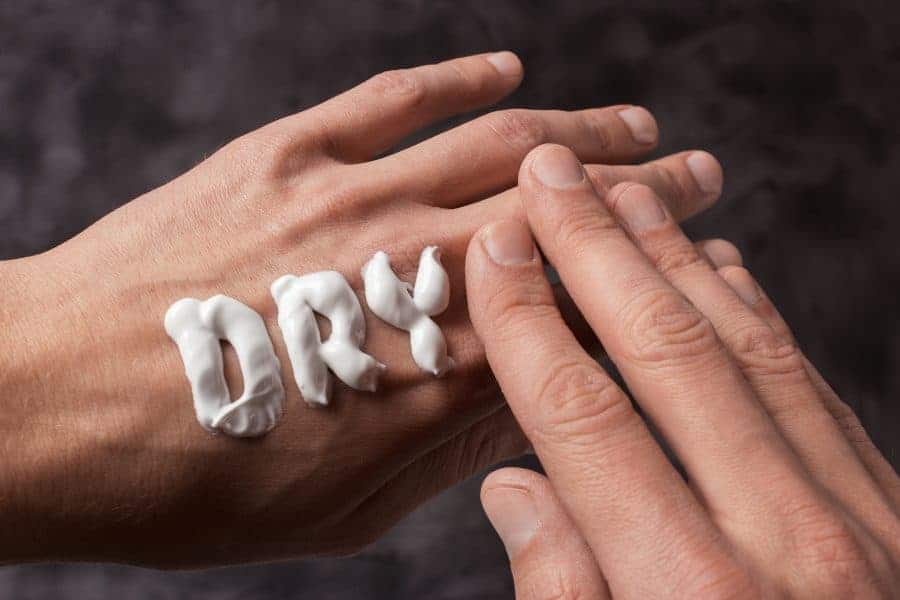
Purpose, Humectants and Occlusives
In our previous article we shared tips on how to keep your skin hydrated by minimizing transepidermal water loss (TEWL). One tip we shared was using a quality moisturizer. But how exactly do you choose the right moisturizer?
The purpose of a moisturizer is to help maintain our skin’s barrier function.
Two of the most common ways to do this is by 1) adding water back into the skin, and 2) preventing transepidermal water loss (TEWL). When looking for the right moisturizer, you should select products that contains humectants and occlusives.
Dr. Ellen Marmur summarizes the importance of using a quality moisturizer:
Think of the skin’s surface like the paint job on a car. If the paint is cracked, the metal underneath is left unprotected from the elements and quickly oxidizes and rusts. The same goes for the top layer of your skin — once it’s dry, brittle, or cracked, you’ve lost your shield and the skin is vulnerable to exposure from outside bacteria and water evaporates. Similar to the shiny coating on a car’s exterior, putting on moisturizer not only makes the surface look good, but it also seals and protects what is beneath it. – Dr. Ellen Marmur, dermatologist
Humectants and Occlusives
Humectants are ingredients that attract water from the atmosphere and the deeper layers of the skin. The most popular humectant in high-quality skincare is hyaluronic acid. This natural substance can hold up to 1000 times its weight in water. Other popular humectants are glycerin, butylene glycol, sorbitol, and urea.
Occlusives are ingredients that prevent water from leaving the skin, locking in moisture. Common occlusives in skincare formulas are propylene glycol, squalane, soy lecithin, silicones, cocoa or shea butter, various oils (jojoba, avocado) and beeswax.
Petrolatum derivatives, such as mineral oil, petroleum jelly (aka Vaseline) and paraffin, are also effective occlusive ingredients that are commonly found in skincare. These ingredients, however, have become controversial in the last decade.
One concern is that they can cause pimples by sealing in dirt and bacteria or cause fungus by not allowing the skin to dry completely. Another concern is that petrolatum derivatives may be cancer-causing. However, there is not enough research published to support the link with cancer, and most of the petrolatum produced in North America undergoes a very specific refinement process. Still, many skin care companies have removed petrolatum from their products.
Choosing a moisturizer for your skin
How do you decide which moisturizer is right for you? It depends on your type of skin:
Guy #1: Oily skin; gets pimples regularly.
Answer: Choose a moisturizer that prioritizes humectants; also needs a no-to-low amount of occlusives.
At Bodé, we recommend the Bodé Moisturizing Gel.
Guy #2: Easy-to-manage skin; doesn’t get pimples very often; gets seasonal dry skin.
Answer: Choose a moisturizer that prioritizes humectants; also consider a low-to-medium amount of occlusives.
From our collection, we again recommend the Bodé Moisturizing Gel. If you feel that you need a richer formula, then consider Emolia.
Guy #3: Mature skin (50’s and up); wrinkles and crow’s feet, lines on the forehead.
Answer: Choose a moisturizer that prioritizes humectants; also needs a low-to-medium amount of occlusives.
A richer formula like Emolia or Reparative Moisture Emulsion is be best suited.
Guy #4: Dry, flaky skin year round.
Answer: Choose a moisturizer that prioritizes humectants and occlusives equally.
Emolia is our first recommendation. There are other moisturizer options at higher price points, but we would suggest this one to start.
Guy #5: Eczema and/or psoriasis.
Answer: Choose a moisturizer that prioritizes occlusives; also needs a medium-to-high amount of humectants.
Apply moisturizers to damp skin for best results, especially after a bath to lock in the moisture.
It’s important to reapply moisturizers regularly throughout the day, especially if you’re dealing with dry or aging skin.
If you’re unsure about which category you fall into, speak with one of our Bodé experts. We can definitely help recommend the right moisturizer for your skin.
